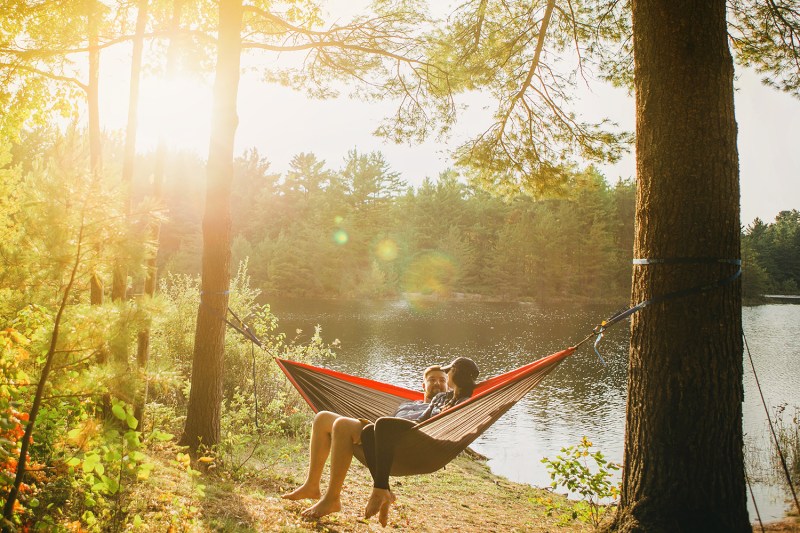
We’re in the thick of summer travel and road-tripping season in the Northern Hemisphere. For campers, finding a last-minute campsite — particularly in the country’s most popular outdoor destinations — can seem almost impossible. With Pitchup, campers can shop cheap, last-minute campsites near some of the most iconic national parks and sites in the U.S.
Pitchup boasts more than 3,600 private campgrounds and RV parks throughout the United States, Europe, and South America. Options range from primitive, dirt-patch tent sites to spots to pitch a camper to lodges, cabins, and huts. Dig deep enough, and you’ll also find unique gems like yurts, tipis, and bell tents. While its numbers pale in comparison to its brand-name competitors, the company’s site promises instant confirmation (a rarity in the campground world), no booking fees, and offers more than 250,000 reviews.
Where Pitchup shines, however, is in finding affordable, last-minute stays during peak season. North Carolina’s Fort Wilderness RV Park and Campground, for example, has midsummer stays starting at $25 nightly just minutes from the Great Smoky Mountains National Park and Nantahala National Forest. A half-hour from Yellowstone National Park, Mack’s Inn Henry’s Fork RV Park offers tent sites for around $50 per night. Pitchup also has campsites within an hour’s drive of the country’s most popular national parks, including Death Valley, Badlands, Arches and Canyonlands, and Mesa Verde.
Airbnb is, of course, a great resource for booking alternative accommodations. However, searching specifically for campsites or campgrounds often requires wading through more full-featured (read pricey) options that aren’t quite what you’re looking for. GlampingHub is ideal for travelers looking for glamping alternatives that offer many of the conveniences of home in a more rustic setting. For truly off-the-beaten-path and off-grid rentals, however, we’re still fans of Hipcamp which claims more than 300,000 private campgrounds and public park campsites, all bookable through its website and mobile apps.
Pitchup is free to join as a camper. Sadly, reservations can only be booked through the Pitchup.com website as there are currently no mobile apps for either Android or iOS.
If you’re keen to get way off-grid with a complete lack of utilities and people, however, dispersed camping is a great way to camp for free all over the U.S.
Editors' Recommendations
- Why you need to be just as wary of moose as bear attacks (and what to do when you encounter one)
- Time to wake up: Climate change gave us our hottest summer ever and the Earth is in meltdown, U.N. says
- Apple just gave hikers, campers, skiers, and snowboarders a great reason to use Apple Maps and ditch Google Maps
- Podcasts every outdoors enthusiast will enjoy: The Crux, Dirtbag Diaries, and more
- Fall camping ideas: 7 simple tips to avoid a miserable trip



